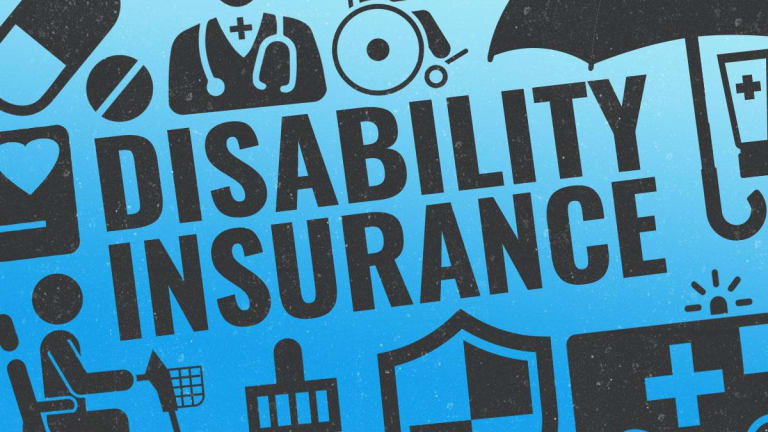Have you ever felt the weight of uncertainty hanging over your financial future? Life has a knack for throwing curveballs when we least expect them, leaving us vulnerable to unexpected emergencies. It might be frightening to worry about your financial stability, especially if you have ambitions and dreams to realize. But have no worry, there is a solution that may give you confidence and support the protection of your financial security: insurance.
In this comprehensive guide to understanding financial planning in insurance, we will explain the importance of insurance in protecting your financial future. We will examine how insurance fits into your overall financial strategy and discuss the vital function it plays in protecting your life, health, and investments.
This post will provide you with the information you need to make wise choices, whether you're just beginning your financial planning journey or trying to improve your current plan.
- What is Financial Planning?
- Scope of Financial Planning
- Objectives of Financial Planning
- What is Insurance?
- Financial Planning In Insurance
- How Insurance Fits Into Financial Planning
- Role of Insurance In Financial Planning
- Steps in the Financial Planning Process
- Must-Have Insurance Plans for Your Portfolio
- Wrapping Up
- FAQs
What is Financial Planning?
Financial planning is the process of effectively allocating your income to cover current costs, upcoming obligations and liabilities, and emergencies in order to meet your financial goals on time and live a happy life. For a peaceful retirement, a lengthy procedure that must begin early must be undertaken.
Scope of Financial Planning
The factors required to determine the following scope should be included in a suitable financial plan:
- Ensuring financial independence after retirement.
- Managing a financial emergency.
- Help reduce tax liabilities.
- Accomplish money goals.
- Investments for wealth creation.
- Incorporate risk management strategies and Insurance.
- Retirement investment.
Objectives of Financial Planning
Now that we understand the meaning of financial planning and scope let us understand the objectives of your financial plan before we start the process.
- Save necessary funds for an emergency.
- Allocate the necessary funds for future financial commitments and retirement.
- Attain financial freedom at different stages in life.
- Pay and clear off debts.
- Timelines to achieve money goals.
- The Financial Planning Process
Therefore, you must understand the inputs and outputs of the financial planning process to strike the right balance.
The output of the financial planning process should help you plan for achieving financial goals utilizing the income considering inflation and tax liabilities.
What is Insurance?
Insurance is a kind of risk management in which policyholders pay a premium to an insurance provider in exchange for coverage against specified losses. To put it another way, it's like having a net to catch you when you fall. There are various reasons that you must have need of Insurance. Some of them are discussed below:
The Importance of Insurance
Here is the list of importance of Insurance including:
Financial Protection
Insurance provides financial protection against risks and uncertainties. It helps cover the costs of accidents, illnesses, property damage, or even loss of life. Without Insurance, these unexpected events could cause severe financial hardships.
Peace of Mind
Knowing that you have Insurance gives you peace of mind. It lets you go about your daily life and business activities without worrying about what might happen if something goes wrong.
Risk Mitigation
By transferring the risk to an insurance company, you can protect yourself against potential financial losses and focus on your goals and aspirations.
Business Continuity
It helps protect against losses due to property damage, liability claims, or other unexpected events. The right insurance coverage can ensure a business can recover and continue operating in adversity.
Legal Requirements
In many cases, Insurance is a legal requirement. For example, auto insurance is typically mandatory to drive a vehicle legally. Similarly, certain professions may require liability insurance to protect against potential lawsuits.
Loan Requirements
Lenders often require insurance coverage when applying for loans, such as a mortgage or business loan. It gives them confidence that their investment is protected in case of unforeseen events.
Various Strategies for Varying Demands
There are various sorts of insurance products to cover the various dangers you can encounter. Health insurance policies cover medical emergencies, whereas life insurance policies cover the danger of early death. Similar to how travel insurance plans cover trip-related risks, automobile insurance policies cover the risk of vehicle theft or accidents.
You may thus create a 360-degree layer of financial security for yourself by selecting several plans according to the dangers you face.
A crucial component of risk management and financial planning is insurance. It offers financial protection and peace of mind and helps individuals and businesses recover from unexpected events. Whether it's protecting your health, home, car, or business, having Insurance is a smart and responsible decision. It provides the necessary support and safeguards your financial well-being.
Financial Planning In Insurance
Financial planning in Insurance refers to integrating insurance products and strategies into an individual's comprehensive plan.It entails figuring out what kind of insurance coverage you need, what risks you face, and which plans would best protect you from those risks.
Protecting one's finances against catastrophic catastrophes like disease, disability, accident, or premature death is where insurance comes in. In times of economic uncertainty, it assists individuals and families in protecting their assets and continuing to live comfortably.
It entails assessing numerous kinds of insurance policies, such as those for life, health, disability, and property. The objective is to secure suitable protection tailored to each person's specific requirements.
How Insurance Fits Into Financial Planning
Are you wondering about what role does Insurance plays in financial planning? If yes, here is the answer: it plays a crucial role in protecting and mitigating risks. It is a safety net to safeguard individuals and their families from unforeseen events with significant financial implications. Individuals can protect their assets and ensure financial security by transferring the risk to an insurance company.
Insurance helps in various aspects of financial planning. If the policyholder were to pass away unexpectedly, their dependents would be protected financially by a life insurance policy. Health insurance relieves the financial burden of healthcare by covering the cost of medical care. In the event of a loss or damage to property, policyholders can turn to property and casualty insurance for assistance.
Role of Insurance In Financial Planning
Insurance plays a crucial role in financial planning by providing protection, risk management, and financial security. Here's a closer look at the key roles of Insurance in financial planning:
Tax Planning
Certain insurance products, such as life insurance policies with a cash value component, offer tax advantages. The cash value growth within the policy is typically tax-deferred, meaning you don't pay taxes on the earnings until you withdraw them. Additionally, some insurance policies offer tax-free death benefits, which can efficiently transfer wealth to beneficiaries.
Wealth Accumulation
Insurance can serve as a tool for wealth accumulation and growth. Certain types of life insurance, such as whole life or universal life, combine a death benefit with a cash value component that accumulates over time. Policyholders can access the cash value through policy loans or withdrawals, providing an additional asset that can be used for various financial needs or goals.
Estate Planning
It helps individuals ensure the smooth transfer of assets to their heirs and provides liquidity to cover estate taxes, debts, and other expenses. Life insurance policies, particularly those designed for estate planning purposes, can help preserve and transfer wealth efficiently to the next generation, minimizing the financial burden on heirs.
Steps in the Financial Planning Process
Before working on the personal financial planning process, discuss the different monetary goals with your family to ensure you make a detailed plan to secure your family financially at any time. Here are the steps:
Analyze your current financial condition: Understand your current financial situation, including your income, debt, routine expenses, etc.
Make a financial budget: List down your different sources of income and applicable expenditures. Allocate funds to different expenditures, including emergencies and investments.
Plan for long-term investments: Decide on loans, timelines for financial commitments, desires, and retirement expenses. Choose suitable financial instruments and start your investment journey.
Start your financial plan: Activate your financial plan by restricting expenses and increasing investment funds accordingly.
Revise your financial plan: Keep revising your financial plan based on lifestyle changes and the cost of living.
Read Also:- Can You Finance a Car without a License? Let’s Find Out
Must-Have Insurance Plans for Your Portfolio
Wanna know about how to secure your future financially? Well, here is the answer. Some of the top insurances that you must have. Let's take a look at these must-have insurance plans:
Term Insurance
Term insurance is a fundamental life insurance plan covering premature death risks. It provides a specified coverage period, and a death benefit is paid out in the event of the insured's death during this period.

It is a must because life is unpredictable. If the breadwinner of a family were to pass away prematurely, the family could face significant financial hardship. A term plan helps protect against such a loss by providing a death benefit that can be used to cover living expenses and fulfill future goals.
Furthermore, modern term plans have evolved to offer comprehensive coverage. You can find variants that cover the risk of premature death and protect against critical illnesses, terminal illnesses, and accidental deaths. Some plans even offer coverage up to an advanced age, such as 99 or 100 years.
Health Insurance
The rising frequency of medical emergencies and the ever-increasing price of healthcare make health insurance a necessity. The costs associated with hospitalization due to illness or injury are covered by your health insurance policy.
The rising expense of healthcare has put a financial strain on many households.

Official statistics show that in May 2021, medical inflation was 8.4%, up from 3.8% in December of the same year. Drug prices climbed by 8.6 percent annually, medical test costs by 6.2 percent, hospital fees by 5.9 percent, and consultation rates by 4.5 percent.
A health insurance policy is essential in this situation. It safeguards your financial well-being in the event of unforeseen medical emergencies, letting you receive the care you need without worrying about how to pay for it.
Motor Insurance
The Motor Vehicles Act of 1988 stipulates that all motor vehicles, whether two or four wheels, must be insured. If you cause harm to another person or their property while operating a motor vehicle, you will be protected financially by your insurance policy. Third-party monetary commitments and losses will be compensated for under the terms of the plan.

Moreover, comprehensive motor insurance plans also cover damages to your vehicle in an accident or other calamities. The plan may also cover theft, providing a lump sum benefit to help you replace a stolen vehicle.
Disability Insurance
If you become unable to work due to an illness or injury, disability insurance can help restore your lost income. In the event that you become unable to work and earn an income, this policy will help you continue meeting your financial obligations and maintaining your current level of living.

You should not ignore the importance of these insurance products to your portfolio. They're essential for safety and helping to keep your cash safe in case of an unexpected event.
Read Also:- Does Health Insurance Cover Car Accident Bills? Here’s Everything You Need To Know
Wrapping Up
Unexpected circumstances can distract even the best-laid plans, and they frequently do. That's why it's so important to have a backup plan ready to go. Insurance provides peace of mind by protecting your assets in the event of unforeseen circumstances.
Before diving into extensive savings and investment strategies for your goals, laying the groundwork for insurance planning is essential. Emergency planning should be the first step in your financial planning journey. By securing the foundation with suitable insurance plans, you create a shield against unforeseen circumstances. This allows you to protect your hard-earned assets and ensure a robust and resilient financial plan.
Once you have established the necessary insurance coverage, you can confidently embark on your financial planning in Insurance journey. With the security provided by Insurance, you can focus on building and managing your portfolio effectively, leveraging investments to achieve your goals. By incorporating Insurance planning into your financial strategy, you are better equipped to navigate the uncertainties of life and stay on track toward a prosperous future.
FAQs
Insuring one's assets against a wide range of potential losses is an essential part of sound financial planning. It ensures the safety of individuals and families by protecting their lives, health, homes, and other possessions. In addition to providing financial security and peace of mind, insurance can also be used as a tool in wealth creation, tax, and estate planning.
Insurance helps people reach their financial goals by reducing their exposure to risk and providing safety nets when bad things happen. Life insurance, for instance, helps safeguard a family's financial stability in the event of the premature death of the breadwinner. Having health insurance helps ease the financial stress caused by unexpected medical bills. Insurance helps people continue working toward their financial objectives by mitigating risk.
Insuring one's life, one's health, one's property (via homeowners or renters insurance), and one's legal exposures are all crucial components of any sound financial strategy. These policies insure policyholders against losses that could have devastating financial consequences. Additional insurance policies, such as disability, long-term care, and business, may be required depending on the specifics of each case.
Insuring one's financial security during retirement is essential. Life insurance and annuities are two items people can utilize to secure a consistent source of money once they've retired. The cash value of a life insurance policy can grow over time, providing a nest egg for later in life. Insurance against the high expenditures of medical care and support in old age is another important function of long-term care policies.





